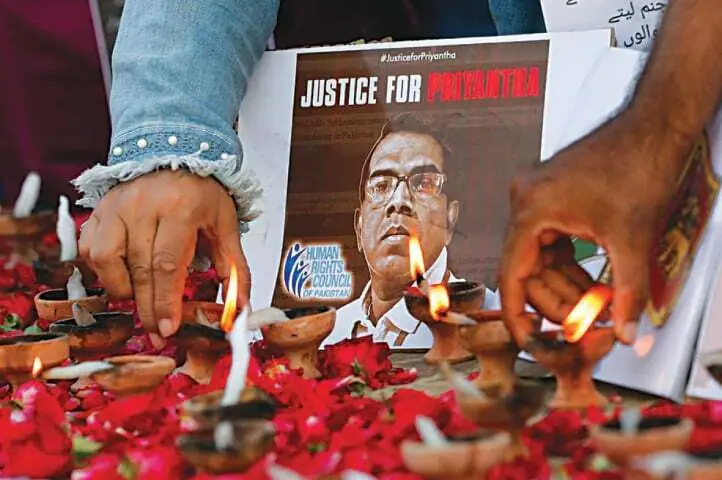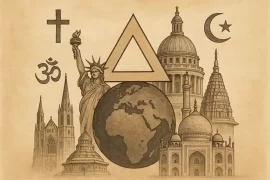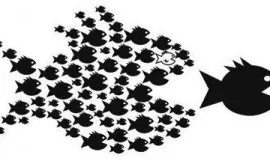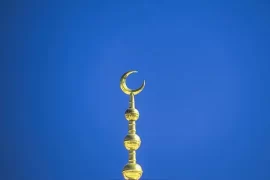Mob lynching is a serious problem in Pakistan, and is having a devastating impact on society. It has become a common occurrence, with individuals being killed for a variety of reasons, including allegations of blasphemy, theft, and even suspicion of theft. The growing trend of mob lynchings in Pakistan is a cause for concern and raises serious questions about the rule of law and the state of human rights in the country.
In the latest incident, 45-year-old Muhammad Waris was killed by a mob in Nankana’s Qazi Town area on February 11, 2023. A mob of locals detained him for allegedly desecrating the Holy Quran. The police arrived and took Waris to the local police station, but the mob followed and eventually stormed the police station, took the suspect, and beat him to death. Police intervened and took the corpse away before the mob could set it on fire.
Definition of Mob Lynching
Mob lynching is a form of vigilantism, where individuals take the law into their own hands, and carry out acts of violence against individuals they believe have committed a crime. The acts of violence can range from physical assaults to murder, and are carried out without due process or the rule of law. In many cases, the individuals who participate in mob lynchings are motivated by religious or ethnic hatred and are driven by a desire to carry out justice on their own terms.
The Causes of Mob Lynching in Pakistan
There are a variety of factors that contribute to the growing trend of mob lynchings in Pakistan. One of the primary causes is the lack of trust in the criminal justice system, which has led to a growing sense of frustration and anger among the population.
In addition, the widespread availability of mobile phones and social media has made it easier for individuals to spread false information and rumors, which can quickly lead to mob violence.
The growing influence of religious extremism and a lack of political will to address the issue of mob lynching are also contributing factors.
According to Ilhan Niaz, a professor of history at Quaid-e-Azam University in Pakistan, “Racial lynching and blasphemy are forms of democratic violence aimed at asserting majority dominance over the victims. Despite the fact that lynching is an illegal act, it is widely socially accepted and is often portrayed as vigilante justice [Prime Minister Imran Khan referred to the Sialkot lynching of two innocent brothers as such]. Some influential individuals, leaders, and members of the clergy, among others, may condemn the violence publicly, but they fail to address the root causes of such acts.”
The Impact of Mob Lynching on Society
The trend of mob lynching in Pakistan has had a devastating impact on society. The acts of violence have led to a climate of fear and mistrust, and have further eroded the rule of law and the state of human rights in the country.
In addition, the acts of violence have contributed to a growing sense of division and hatred, as individuals from different religious and ethnic backgrounds become increasingly polarized. This has further contributed to the erosion of social cohesion and the stability of the country.
The Failure of the Pakistani Government to Address Mob Lynching
Despite the growing trend of mob lynchings over accusations of blasphemy in Pakistan, the government has been slow to take action to address the issue. In many cases, the government has been reluctant to take action against individuals who participate in mob lynchings, for fear of inciting further violence and unrest.
The lack of action by the government has led to a culture of impunity, where individuals feel free to carry out acts of violence with little fear of consequences.
Blasphemy in Pakistan is considered a criminal offense that is punishable by death.
Major cases of mob lynching ver blasphemy in Pakistan
In Pakistan, the occurrence of violence committed in the name of religion is alarmingly widespread. Despite the fact that no one has been executed under the controversial blasphemy laws, more than 70 individuals who were accused of blasphemy in Pakistan were murdered by mobs from 1990 to 2023.
Dec 3, 2021: Priyantha Kumara

The most high-profile mob lynching in Pakistan was the killing of the Sri Lankan garment factory manager Priyantha Kumara on December 3, 2021 in Sialkot. He was lynched by a mob over allegations of blasphemy and his corpse was set on fire on the road. The incident caused a diplomatic crisis between the two countries and sparked global outrage resulting in a mass trial involving 89 suspects. Ultimately, six men were sentenced to death in the case.
April 13, 2017: Mashal Khan
Mashal Khan, a journalism student at Abdul Wali Khan University in Mardan, was savagely murdered by a group of students in an attack that gained widespread international attention for its brutal and vicious nature. Khan was well-known for his progressive views.

In that case, 61 individuals were arrested. Of those individuals, 1 was given the death penalty, 7 were sentenced to life in prison, 25 were given four-year jail sentences, and 26 were acquitted.








